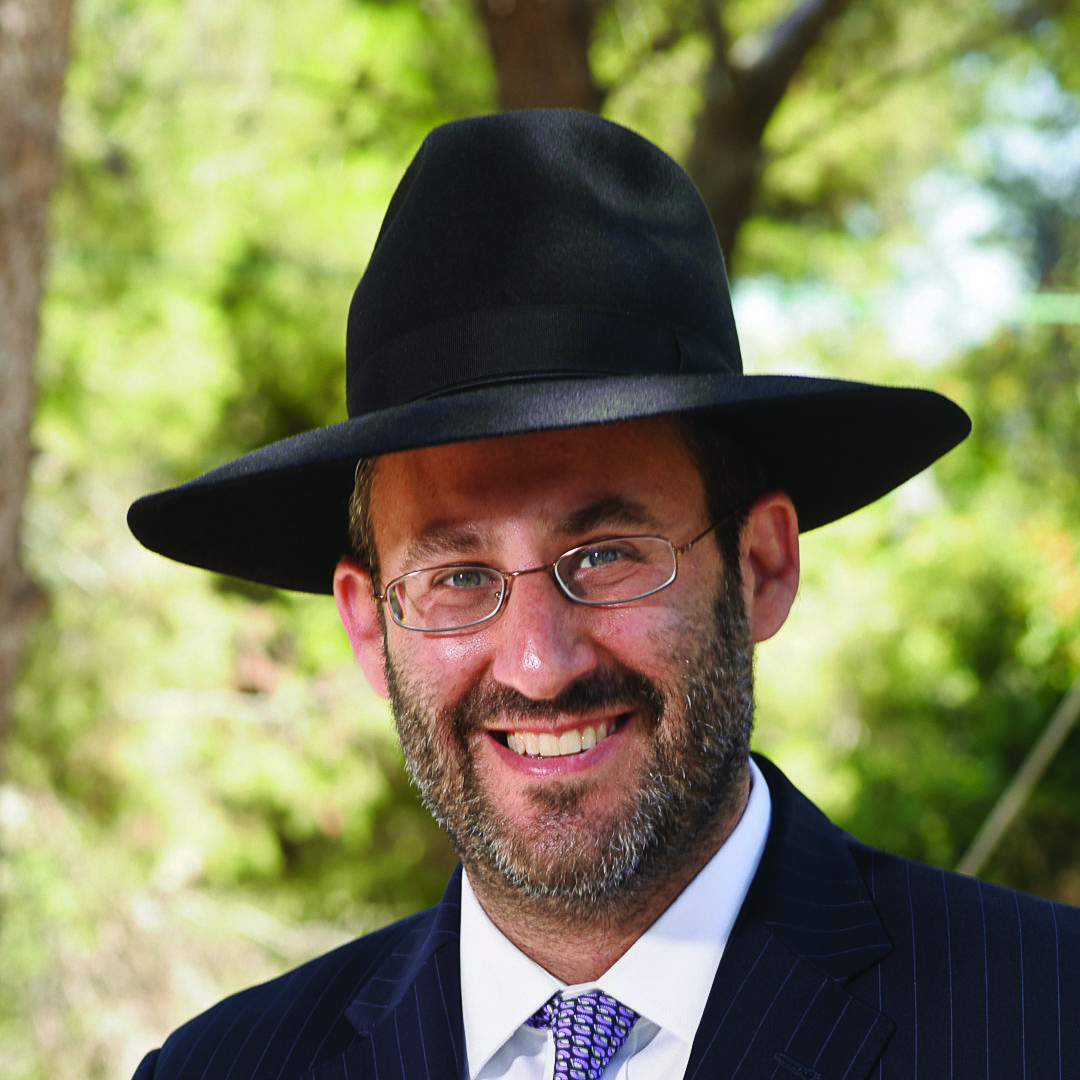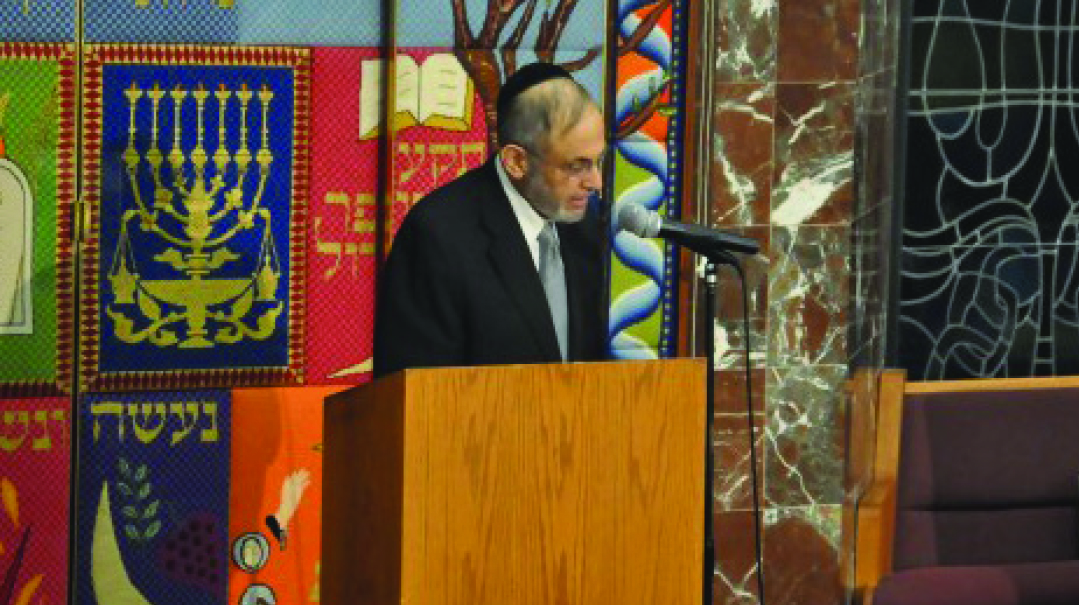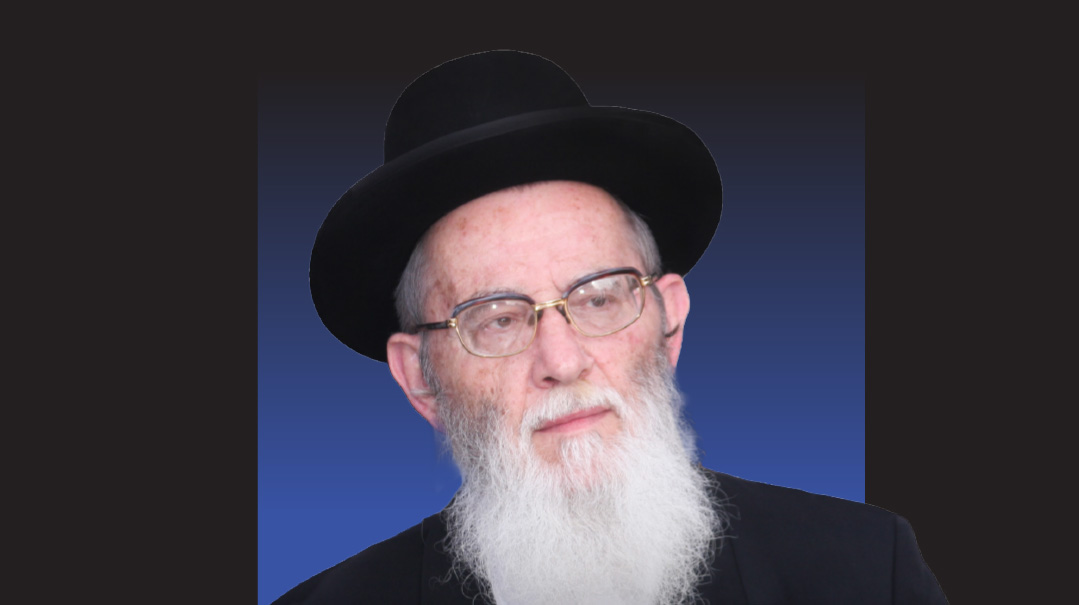He Wore the Crown

Rabbi Yehuda Kelemer ztz”l served as a local community rav, but his influence went way beyond that

Moreinu Harav Yehuda Kelemer ztz”l, the rabbi of the Young Israel of West Hempstead for 38 years, was “echad bemino,” one of a kind. His influence went way beyond his title, his shul, and even the broader West Hempstead community. This past Erev Shabbos, when the terrible news of his passing circulated, so many felt a personal sense of loss.
Titles and positions can be deceiving. Though he officially served as a local community rabbi, Rav Kelemer was a world-class talmid chacham. He spent multiple years as chavrusa to Rav Mordechai Gifter ztz”l, rosh yeshivah of Telz, becoming an expert in Yevamos and sugyos of Ishus. The Kelemer family possess letters from Rav Moshe Feinstein seeking input from Rav Kelemer on these complex topics, and Rav Kelemer’s intricate sefer on the kesubah, published when he was in his thirties, has Rav Moshe’s approbation.
Rav Kelemer, who was learning in the Mir when his mother passed away, didn’t return to America for the levayah. Rav Chaim Shmuelevitz felt his presence in the beis medrash was too important to the yeshivah. When Rav Yosef Dov Soloveitchik of Boston was unavailable to deal with complex questions, he referred people to Rav Kelemer, who was in his late twenties then. A prominent rosh yeshivah recently shared with me how he was blown away by an obscure source that Rav Kelemer shared with him to illuminate the sugya of chazakah in mitzvos. In fact, I was once offered a prominent rabbinical position primarily because Rav Kelemer was my mentor and posek.
Rav Kelemer’s predecessor was Rabbi Sholom Gold, who announced his upcoming aliyah in the early 1980s, and my father was on the search committee when Rav Kelemer applied to fill the position. One of the questions the committee asked the candidates was whether they would eat out in congregants’ homes. Rav Kelemer deftly responded that he doubted “anyone wants to host myself, my wife, and my 12 children.” The search committee even received a letter from the Young Israel of Brookline, where Rav Kelemer had been serving as rabbi, begging them not to accept Rav Kelemer’s candidacy so that he wouldn’t leave Boston.
Rav Kelemer went on to become the mara d’asra of the entire West Hempstead. Although West Hempstead grew exponentially over the next few decades and shuls opened on both sides of town, everyone still deferred to Rav Kelemer.
He was a broad thinker and a brilliant scholar infused with a tremendous love for chassidic thought; interestingly, his petirah was on the yahrzeit of the Baal HaTanya. His views on various issues didn’t always match the classical yeshivah approach, despite his tremendous reverence for the world that he came from. A friend once did some construction in the Rav’s bedroom and shared with me that he was astonished to find astrophysics and quantum-mechanics content near his bed.
Growing up as a child in West Hempstead, my memories of Yamim Tovim carry the indelible impression Rav Kelemer left. He was the son of a chazzan and had an incredibly sweet voice that made you cry and was emblematic of his sweetness and sensitivity. His Ne’ilah each year pierced hearts and uplifted prayers. The shul had a minhag that each Succos and Pesach the yeshivah bochurim would speak between Minchah and Maariv. Afterward, the Rav would get up and brilliantly weave all the Torah together while elevating and praising each of the young aspiring scholars. That scene remains one of my favorite memories to this day.
Though overqualified as a communal rav, Rav Kelemer starred in this role his entire professional life. His unparalleled greatness in Torah suffused his personality with a sweetness that made him beloved by everyone. To me, Rav Kelemer fit the description of the poet Rudyard Kipling, of someone who can “walk with kings — but not lose the common touch.” I would suggest most of his congregants didn’t appreciate the depths of his greatness in Torah. But they did appreciate his angelic character, soft-spoken temperament, and incredible warmth.
He was the embodiment of the Chazal that to be respected, one must perpetually give honor to others. Rav Kelemer always made you feel uplifted and great when you spoke with him. As we were neighbors, he would often stop by our home just to say hello or check in on my parents. The Rav rarely slept at night, and I recall waking him up on a number of occasions when he stole a quick nap in his office during the daytime. He would immediately welcome me into his office as if nothing had happened.
I can’t tell you how many times I’d go to him with a question or a thought in learning and he’d make it seem as if I’d asked him an earth-shattering question or that I was somehow alluding to the myriad obscure sources that he had on his fingertips. He was deferential and so sincere that I really wondered if he believed I was somehow greater than I actually was.
Rav Kelemer was in a horrific car accident in 2016 when he was hit by a car in front of the shul and was unconscious for many days. A nurse who rolled him to the side of the road and called for help saved his life, but it took many months for the Rav to recover; he suffered vestiges of his injuries until his death.
Prior to the accident, I had played a small role in orchestrating a major Torah event for the Orthodox Union (OU) and invited him to be a presenter, but he missed the event due to his injuries. I reached out to him in early 2017 to wish him well and received the following typical response:
Dear Reb Dovid and Ruchi,
You can’t imagine how much your email and brachos mean to me. I heard the OU event was a great success and you are truly an architect of Torah in our generation. This is truly a credit to the mesorah of your parents and grandparents. I hope to return to West Hempstead and have the opportunity to thank you directly.
Purim Sameiach
Yehuda Kelemer
There are countless stories of how Rav Kelemer was there for people in their most difficult times. So many relied on him for comfort and support, and his efforts on their behalf were extraordinary. The outpouring of grief and love over this loss has been overwhelming.
My father had major heart surgery after Pesach of 2017, while Rav Kelemer was still recovering from his accident and just starting to move around. Rav Kelemer magically appeared in the ICU soon after my father’s surgery to be mevaker choleh, and give him chizuk, commenting on my father’s very big and special heart. He could barely walk, holding onto various walls for support, but he wasn’t deterred. He wanted my father, his congregant of so many years, to know he was with him.
Rav Kelemer knew loss up close; perhaps that was the key to his endless compassion to others. Upward of 50 years ago Rav Kelmer authored a small sefer entitled Znif Meluchah, whose title comes from Anim Zemiros and speaks of how Hashem holds us like crowns in his hands. The sefer was written on the heels of dual tragedies suffered by the Rav: the loss of his first child, a baby daughter, as well as his mother.
The words Znif Meluchah so aptly describe our Rav, intertwined with Hashem and the quintessential expression of Hashem’s glory. May he be a meilitz yosher for our people and may we continue to learn from his princely ways.
Rabbi Dovid M. Cohen is a rabbi in North Woodmere, NY. He is the author of We’re Almost There: Living with Patience, Perseverance and Purpose (Mosaica Press 2016). He is the host of the Jewish Philanthropy Podcast and a marital therapist.
(Originally featured in Mishpacha, Issue 844)
Oops! We could not locate your form.













